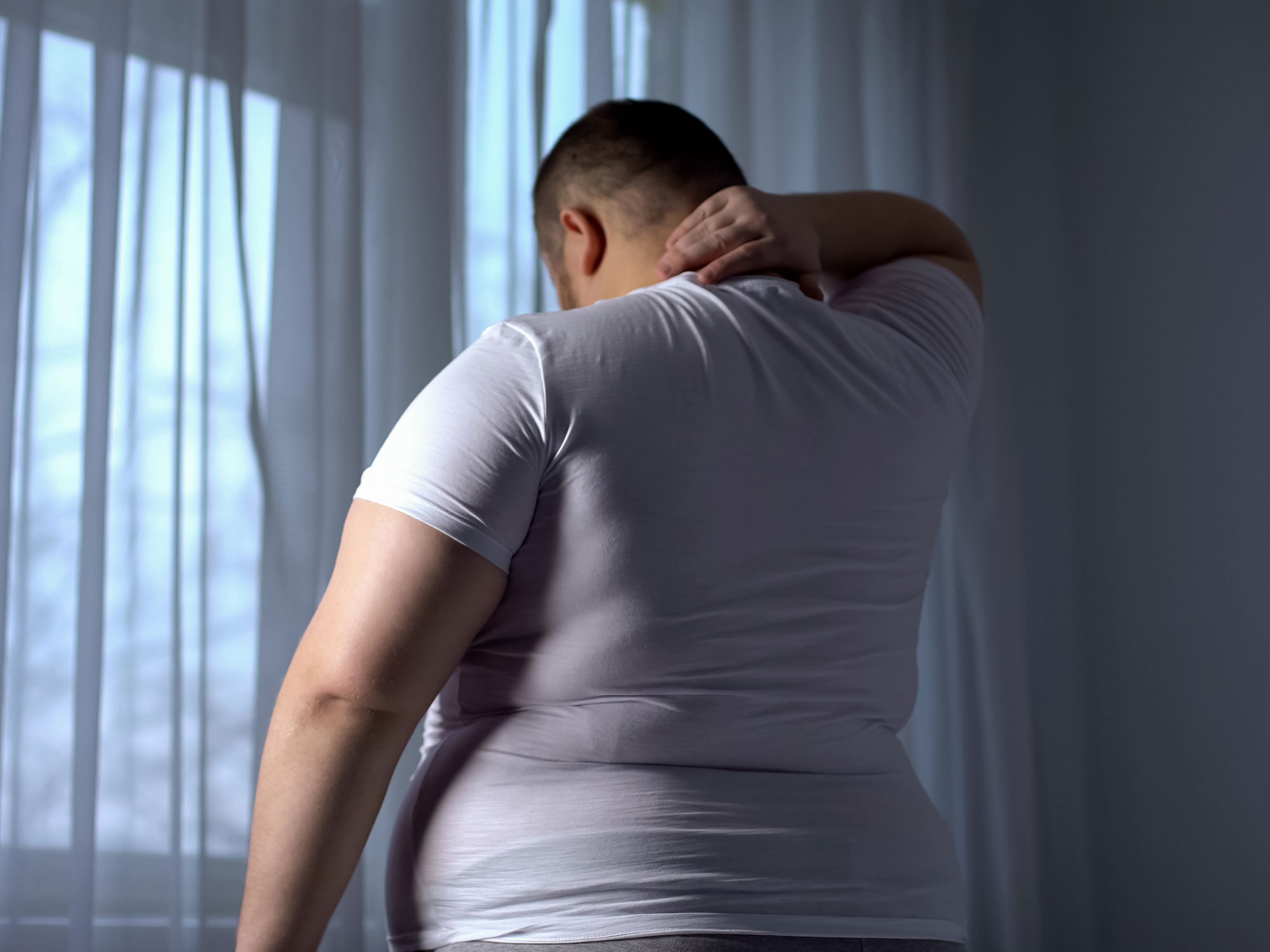Get Easy Health Digest™ in your inbox and don’t miss a thing when you subscribe today. Plus, get the free bonus report, Mother Nature’s Tips, Tricks and Remedies for Cholesterol, Blood Pressure & Blood Sugar as my way of saying welcome to the community!
Why weight problems before 50 spell bigger problems after 50

My mom has struggled with her weight her entire life.
When my sister and I were growing up, she would tell me stories about how hard it was to be the only child in her family with a weight problem and how it hurt her self-esteem during high school. This was always her reminder to us to be careful about our diet and to never stop exercising.
And, I’ve been very thankful for those reminders since it’s kept me on track.
Unfortunately, my mom still has a weight problem that has now led to other issues. Sometimes she struggles to breathe. Getting out of a chair can be a challenge. And, she is always tired.
Put simply, the extra weight she carries around affects every aspect of her life.
Now, a new study published in the International Journal of Epidemiology is finally showing the exact risk you’re taking if you’re overweight or obese and what you can expect it to do to your ability to handle your daily tasks once you’ve passed 50.
Will you be able to care for yourself as you age?
The research, performed at University College London, looked specifically at the effects of long-term versus short-term obesity on physical functioning as you age.
Basically, physical functioning includes the things you need to do every day to be able to care for yourself, live independently, and spend time with your family and friends. Activities included were:
- Bending, kneeling, and stooping
- Carrying bags
- Climbing stairs
- Bathing and dressing
- Lifting
The researchers analyzed the data from more than 8,600 participants from the time they were born in 1958 through to midlife, making this a study of gigantic proportions. And, they found that obesity at any age in adulthood is associated with a greater risk of poor physical functioning at age 50.
Related: 4 ways to avoid disability as you age
So, for example, compared to a woman of average height and weight at 23 years old, carrying around an extra 17.6 pounds of weight was associated with a 32 percent elevated risk of poor physical functioning at the age of 50.
Can you imagine? You increase your chances of losing your independence by 32 percent just by being overweight at any point in your life.
The longer you’re overweight, the worse the risk
And, if that weren’t bad enough, the researchers found that the longer the duration of obesity, the more likely you’ll have problems.
In fact, they found that people who are obese from childhood through to middle age are more than twice as likely to have difficulty with daily tasks such as lifting, climbing stairs and carrying shopping by the time they are 50.
The researchers say this is likely because people who have been obese for longer are also more likely to have a higher BMI (body mass index) by the age of 50.
Dr. Nina Rogers of the UCL Epidemiology & Public Health and lead author of the study, said, “Our study, therefore, emphasizes the importance of preventing and delaying the onset of obesity in order to mitigate the risk of poor physical functioning in middle age.”
This means that anything you can do to maintain a healthier weight could save your ability to handle your activities of daily living and allow you to remain independent longer.
Of course, there’s no shortage of diets to choose from. The key is finding one you can stick to…
If you are ready to commit to avoiding disability due to obesity, fasting might be for you. It’s not as difficult as it sounds and starts working in the first 16 hours. It’s possible to lose 3 percent of your body weight in just 12 weeks.
Many people find success with the keto diet. But it’s not for the faint of heart. If that sounds like you, another option might be to try this super-satisfying diet.
For quick help to accelerate weight loss easier, check out these 10 easy weight loss tricks.
Sources:
- Lifelong obesity linked to physical difficulties aged 50 — University College London













